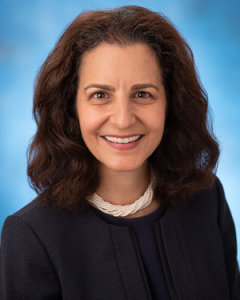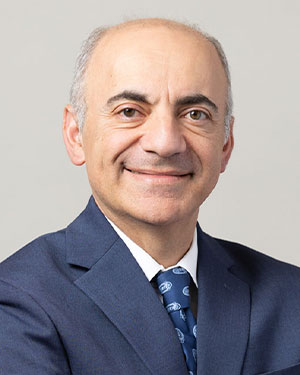Ramin Davidoff, MD, on value-based care and how it benefits older adults.

Dr. Maria Ansari: Tipping point for value-based care is now

Value-based care, a care delivery model that rewards patient outcomes and quality care, is gaining renewed interest, according to Maria Ansari, MD, FACC, co-CEO of The Permanente Federation. Dr. Ansari appeared on a recent episode of the American Medical Association’s AMA Update, where she discussed how value-based care rewards outcomes and advances innovation.
While Kaiser Permanente has practiced value-based care for 75 years, “the pandemic and changes in regulatory requirements for billing, and also advances in technology have allowed value-based care to come back to the forefront of people’s minds,” Dr. Ansari said. As a result, interest in the model is “certainly at a tipping point.”
Related value-based care story: “Health care experts discuss the promise of value-based care”
The advantage of value-based care vs. traditional fee-for-service models
During the COVID-19 pandemic, patient visits to brick-and-mortar facilities plummeted. With fewer in-person visits, many fee-for-service health care organizations — which rely on payment per service, treatment, or procedure — were dealt a severe financial blow. On the other hand, in value-based care payment arrangements, physicians and care teams are accountable for quality and cost through shared financial risk.
Dr. Ansari noted that value-based care organizations are better able to weather disruptions, thanks to strategic, long-term investments in health care innovation and care delivery. For example, throughout the pandemic, Kaiser Permanente’s robust electronic health record system and telehealth technologies were firmly in place to support care delivery. The organization quickly pivoted, going from 15% of scheduled appointments via telehealth to 80%.
Artificial intelligence that supports physicians
Dr. Ansari also highlighted the organization’s investment in artificial intelligence, or what Permanente physicians call “augmented intelligence.” Doctors are using powerful programs to predict health risks and manage patient care. For example, when COVID shelter-in-place orders kept many women from coming in for their annual mammogram, Permanente physicians used AI to help predict which patients were more likely to develop breast cancer so they could prioritize patients who needed care the most.
“AI predicted better than traditional risk factors by 60 percent,” she said.
What keeps health care organizations from switching to value-based care?
Ansari acknowledged that many physicians still use the fee-for-service payment model due to technological and cultural barriers.
“With regards to technology, I think you do need to have that basic infrastructure because it helps enable you to manage that patient, predict who’s going to have the next stroke, who’s going to have the next heart attack, focus on prevention, know who’s due for their colonoscopy, and be able to do proactive outreach and management,” she said.
Related value-based care story: “Ramin Davidoff, MD, on the benefits of integrated, value-based care”
Dr. Ansari said changing the culture requires a shift in mindset to focus on prevention rather than the treatment of diseases. “I think some of it is education about what exactly value-based care is, because I think there is some fear about it,” she said. “You have to suspend your disbelief that if you are in a prepaid model, you can actually manage this patient, still generate revenue and that if the patient never has a heart attack, never has a stroke, never has cancer, that the system will still benefit, and your incentives are actually aligned.”
Physician leadership likely will be the catalyst to build momentum for value-based care. “I think we’ll see in 2024 a bigger support for physicians to be involved in alternative payment models of care,” Dr. Ansari said. “Because I think the physician voice has been lost in many of the ways that health care has changed. Physicians want to focus on prevention, physicians want to prevent disease, but we’ve been living in a system that rewards disease instead of prevention.”
Note: To view the entire interview and read the transcript, visit the AMA website.


